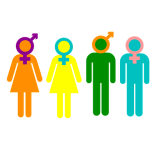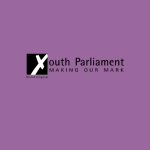On this page
- Are Human Rights important?
- What are my rights as a child or young person?
- Equal Opportunities quiz
- Equal Opportunities Champions
Are they really that important?
We all have human rights.
Human rights are the basic rights and freedoms that belong to every person in the world, from birth until death.
You may also be interested in the UK Youth Parliament and citizenship.
The animation below shows how they protect us in our day-to-day lives and why they are so important.
“What are my rights as a child or young person?”
Across the globe every child has rights, whatever their ethnicity, gender, religion, language, abilities or any other status. The United Nations Convention on the Rights of the Child (UNCRC) sets out these rights. They range from rights in education, your rights in care to protection from exploitation and harm.
Take our ‘Equal Opportunities’ quiz
Everyone has the right to be treated equally, regardless of gender, age, disability, sexuality and race.
Equal opportunities is different to equality.
Test your knowledge – are these statements true or false?
A stereotype is a reliable description of someone.
False. A stereotype is a widely held, fixed and over simplified idea of a particular type of person or thing. For example all teenagers are lazy and make trouble.
Prejudice is an opinion, not based on actual experience.
True. Prejudice is a preconceived opinion that is not based on reason or actual experience. For example prejudice against or hostility toward people of another race or colour or culture.
Discrimination is when people are treated fairly.
False. Discrimination refers to the unjust or prejudicial treatment of different categories of people, especially on the grounds of ethnicity, age, sex, or disability.
The following are the legal protected characteristics, under The Equality Act 2010:
- Age
- Disability
- Gender reassignment
- Marriage and civil partnership
- Pregnancy and maternity
- Race
- Religion or belief
- Sex
- Sexual orientation
Discrimination on the grounds of any of these characteristics is illegal. Discrimination can take many forms including direct discrimination, indirect discrimination, bullying, harassment and victimisation.
Diversity holds us back.
False. Diversity is recognising, respecting and celebrating each other’s differences. A diverse environment is one with a wide range of backgrounds and mindsets, leading to more creativity and better ideas.
Inclusion means everyone is included.
True. Inclusion means creating an environment where everyone feels welcome and valued. An inclusive environment can only be created once we are more aware of our unconscious biases, and have learned how to manage them.
Equality of opportunity means we help those who are less advantaged reach their potential.
True. Equality also means equality of opportunity: we must also ensure that those who may be disadvantaged can get the tools they need to access the same, fair opportunities as their peers.
Equal opportunities champions
Below are some links to organisations who champion people’s rights.
If you need legal advice on any topic, please call the Child Law Advice Line (freephone) on 08088 020 008
Information about the full range of services that are available for children and young people with special educational needs and disabilities, and their families and carers.
Delivers race equality services that bring significant benefits to Suffolk communities on issues around employment, housing, education, social welfare and criminal justice.
Support and advice for people who identify themselves as a gay man, lesbian, bisexual, or transgendered person, as well as their family, carers and friends.
Provides advice and help to children and young people who live away from home or who receive social services.
Provides information, advice and help about your rights and responsibilities under human rights and equality law, with a particular focus on:
- Age
- Disability
- Gender & sexual orientation
- Race
- Religion and belief
Page updated on March 28th, 2023 at 07:20pm





